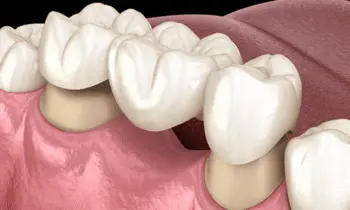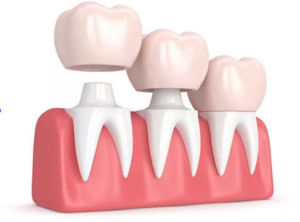
Dental crowns are an essential component of restorative dentistry, and they play a crucial role in preserving and enhancing the functionality and appearance of your teeth. Our Dental Crowns Rockville understands that many individuals may be unsure about when they need a dental crown and what the treatment process entails. In this article, we’ll explore the common indications for dental crowns and provide an overview of the treatment process.
What Is a Dental Crown?
A dental crown, sometimes referred to as a “tooth cap,” is a custom-made covering that is placed over a damaged or weakened tooth. It serves both functional and aesthetic purposes, restoring the tooth’s strength, shape, and appearance. Dental crowns are typically made from various materials, including porcelain, metal alloys, and ceramic, and they are designed to blend seamlessly with your natural teeth.
Common Indications for Dental Crowns
Dental crowns are recommended by dentists for a variety of reasons, with the following being some of the most common indications:
1. Tooth Decay
Severe tooth decay can weaken a tooth to the point where a simple filling is insufficient to restore its integrity. In such cases, a dental crown is often the ideal solution. The crown covers the damaged tooth, preventing further decay and preserving its function.
2. Cracked or Fractured Teeth
Accidents, injuries, or even biting into hard objects can lead to cracked or fractured teeth. Dental crowns provide stability and support to these compromised teeth, preventing further damage and maintaining their strength.
3. Large Fillings
Teeth with large fillings are more susceptible to fractures. Dental crowns are used to protect and strengthen teeth that have a significant portion of their structure replaced by fillings.
4. Root Canal Treatment
After a root canal procedure, a tooth may become more brittle due to the removal of its pulp. Placing a dental crown on the treated tooth ensures its long-term functionality and helps prevent potential fractures.
5. Cosmetic Enhancement
Dental crowns can also be used for purely cosmetic purposes. If you have discolored, misshapen, or poorly aligned teeth, crowns can help improve the appearance of your smile by covering these imperfections.
The Dental Crown Treatment Process
Understanding the process of getting a dental crown can help ease any apprehensions you may have. The procedure typically involves several steps:
1. Consultation and Evaluation
The process begins with a consultation at Rockville Dental Arts. Your dentist will evaluate the condition of your tooth and discuss the need for a dental crown. X-rays may be taken to assess the extent of the damage and to ensure the tooth’s root is healthy.
2. Tooth Preparation
If it is determined that a dental crown is necessary, the next step is tooth preparation. During this phase, your dentist will reshape the damaged tooth to create space for the crown. This often involves removing a portion of the tooth’s outer structure. Don’t worry; local anesthesia is administered to ensure your comfort throughout the procedure.
3. Impression
After tooth preparation, an impression of the reshaped tooth is taken. This impression is used to create a custom-fitted crown that will match the size and shape of your natural teeth. While the permanent crown is being fabricated, a temporary crown is placed to protect the tooth.
4. Crown Placement
Once the permanent crown is ready, you’ll return to Rockville Dental Arts for the final placement. The temporary crown is removed, and the permanent one is secured in place using dental cement. Your dentist will make any necessary adjustments to ensure a proper fit and a comfortable bite.
5. Final Adjustments
After placement, your dentist will check your bite and make any final adjustments to ensure the crown functions correctly and feels natural when you chew and speak.
Caring for Your Dental Crown
Proper care and maintenance are essential to ensure the longevity of your dental crown. Follow these guidelines to keep your crown in excellent condition:
Practice Good Oral Hygiene: Brush and floss regularly to prevent gum disease and decay that could affect the tooth under the crown.
Avoid Chewing Hard Objects: Refrain from chewing on hard items like ice or pens, as this can damage the crown.
Regular Dental Checkups: Schedule routine dental appointments at Rockville Dental Arts for professional cleanings and examinations.
Protect Your Crown: If you grind your teeth at night, consider using a nightguard to protect your crown from excessive wear.
In conclusion, dental crowns are a versatile and effective solution for various dental issues, from structural damage to cosmetic enhancement. At Rockville Dental Arts, our team is dedicated to helping you maintain your oral health and enhance your smile. If you believe you may need a dental crown or have any questions about the process, don’t hesitate to contact us for a consultation. We are here to provide you with the expert care and guidance you need for a healthy and beautiful smile.

